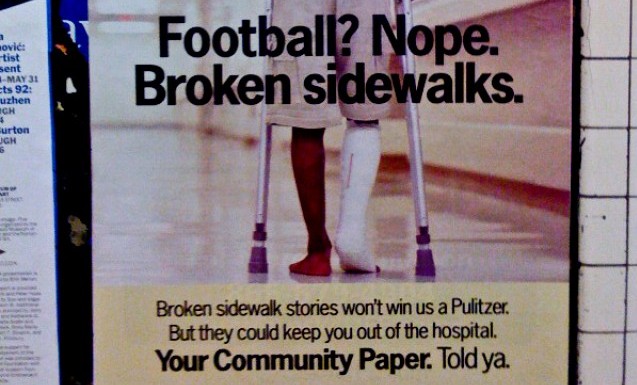Biz: We’re gonna use this post to link to the Nikkei’s home page
- Why? Because they say we can’t. The Japanese business newspaper is following the lead of a lot of newspapers worldwide by adding a paywall, but their paywall is way beyond that of, say, the Wall Street Journal. First, you have to submit a written application to link to the site (which we didn’t do). And second, they’ve gone and disabled the copy function on their site. Why? Because they’ve seen American papers open the floodgates and lose readership as a result. source

 We blame Lee Abrams, right. Our friends at the Newport News, Va. Daily Press got some awful news this week, when they found out that much of their paper’s copy-editing and design facilities would be outsourced to the Tribune Corp. mothership in Chicago. 10 percent of their newsroom staff will get laid off as a result of this. Lee Abrams, above, is responsible for starting something similar with the radio industry. So, here’s a brief explanation of what’s up with the Daily Press:
We blame Lee Abrams, right. Our friends at the Newport News, Va. Daily Press got some awful news this week, when they found out that much of their paper’s copy-editing and design facilities would be outsourced to the Tribune Corp. mothership in Chicago. 10 percent of their newsroom staff will get laid off as a result of this. Lee Abrams, above, is responsible for starting something similar with the radio industry. So, here’s a brief explanation of what’s up with the Daily Press:
